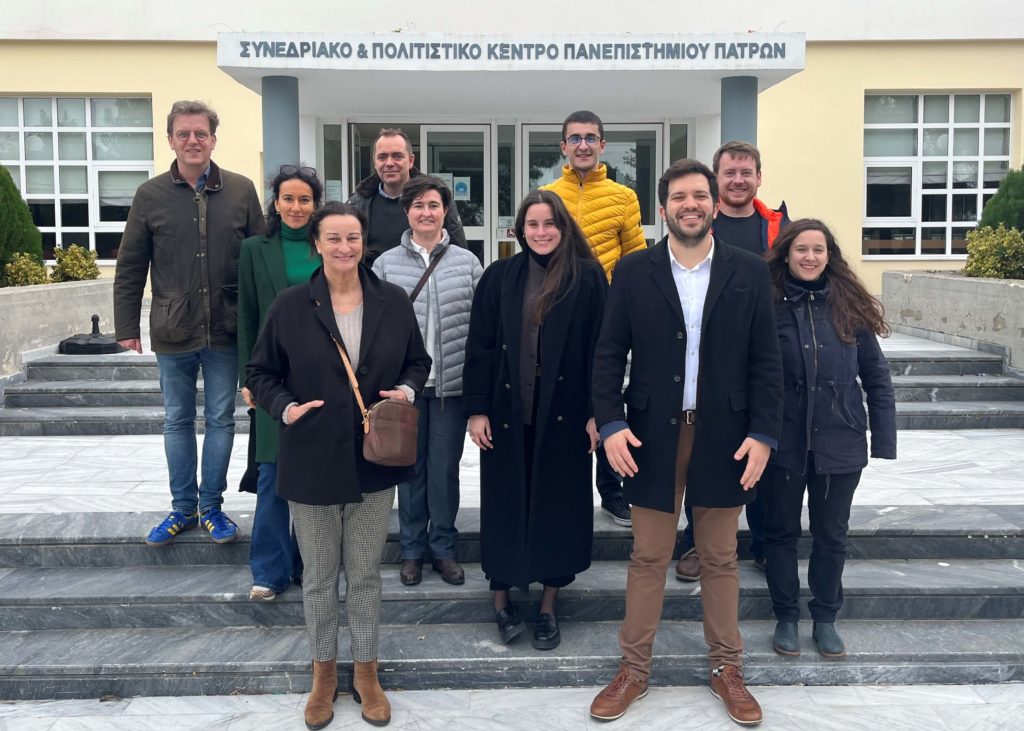As industries transition to I4.0 production models, robots are becoming more prevalent in industrial processes. XRExtended reality (XR) refers to real-and-virtual combined environment, including virtual reality (VR), augmented reality (AR), and mixed reality (MR). More technologies are also entering this domain, with successful cases in training, remote assistance, and contextual information access.
MASTER can enhance robotics training in manufacturing with its open XRExtended reality (XR) refers to real-and-virtual combined environment, including virtual reality (VR), augmented reality (AR), and mixed reality (MR). More platform. It integrates key functionalities, creating safe and flexible robotic environments with advanced interaction mechanisms. The project delivers rich training content and invites third-party contributions through two Open Calls.
Many industries are rapidly adopting automation and robotic technologies in their processes. In parallel, Extended RealityExtended reality (XR) refers to real-and-virtual combined environment, including virtual reality (VR), augmented reality (AR), and mixed reality (MR). More (XRExtended reality (XR) refers to real-and-virtual combined environment, including virtual reality (VR), augmented reality (AR), and mixed reality (MR). More) technologies have reached sufficient maturity to enter the industrial applications domain, with early success cases often related to training workers, offer remote assistance, access to contextual information, and interaction with digital twinsDigital twins are virtual replicas of physical objects, systems, or processes. They are created using digital data and models to simulate and represent the characteristics, behaviour, and dynamics of their real-world counterparts in a highly accurate and detailed manner. Digital twins serve as a bridge between the physical and digital More. After a well-consolidated first wave of deploying industrial robots for automation, collaborative robots are now making their way to industries. In the future, these robots will be increasingly enhanced with XRExtended reality (XR) refers to real-and-virtual combined environment, including virtual reality (VR), augmented reality (AR), and mixed reality (MR). More applications to effectively work with the human operators as peers. This would require industrial operators to understand both technologies, and be able to use them and interact with hybrid solutions confidently. Nevertheless, the challenges for human operators are common for both collaborative and non-collaborative robots, since human workers must transfer their skills to the robots. In other words, it should be feasible for the human operators to program the robots, since they already know the production processes and the tasks that the robots must perform with them.
The new European project Mixed realityMixed Reality (MR) is a blend of physical and digital worlds, unlocking natural and intuitive 3D human, computer, and environmental interactions. This new reality is based on advancements in computer vision,graphical processing, display technologies, input systems, and cloud computing. MR is often achieved through the use of specialized devices such More ecosystem for teaching robotics in manufacturing (MASTER) aims to boost the XRExtended reality (XR) refers to real-and-virtual combined environment, including virtual reality (VR), augmented reality (AR), and mixed reality (MR). More ecosystem for teaching and training of robotics in manufacturing, by providing an Open XRExtended reality (XR) refers to real-and-virtual combined environment, including virtual reality (VR), augmented reality (AR), and mixed reality (MR). More platform. This platform integrates key functionalities for creating safe robotic environments, gives the possibility to program by demonstration new flexible robotic applications, and provides advanced interaction mechanisms, such as gaze-based interactionGaze-based interaction refers to a technology or method that allows users to interact with computers, devices, or interfaces using their eye movements and where they direct their gaze. It is a form of human-computer interaction that leverages eye-tracking technology to capture and interpret a user's eye movements and use them More. MASTER also aims to deliver rich training content on robotics, using the above functionalities to show their potential, targeting different stakeholders such as vocational or university students, junior engineers, project managers, salesmen etc.
Additionally, the MASTER project will publish two Open Calls to integrate third-party contributions, with the first call aiming at enhancing the platform with additional technologies and functionalities, similarly to the ones described above. The selected companies will have the opportunity to integrate their technologies in the platform and test them with a wide range of end-users. The second Open Call targets beneficiaries from the education sector, offering the possibility to use the platform and the provided tools to create their own educational content. The first call will open in the beginning of 2024, while the second one will open in the beginning of 2025. The exact dates and information will be announced on the project’s website and social media channels (Twitter and LinkedIn).
The MASTER project will last for 42 months, and it includes seven partners from three different European countries, Greece, Spain and Germany. The project’s kick off meeting took place at the University of Patras, Greece, in January, where the partners met for the first time in person. Besides setting the working principles, they had the chance to experience extended realityExtended reality (XR) refers to real-and-virtual combined environment, including virtual reality (VR), augmented reality (AR), and mixed reality (MR). More applications that LMS has created in other projects. In addition, together with the two other European funded projects XR2Learn and XR4ED, the consortium created the eXtended RealityExtended reality (XR) refers to real-and-virtual combined environment, including virtual reality (VR), augmented reality (AR), and mixed reality (MR). More Learning cluster to boost the implementation of innovative XRExtended reality (XR) refers to real-and-virtual combined environment, including virtual reality (VR), augmented reality (AR), and mixed reality (MR). More applications for learning and support innovators together.
Participants:
- Laboratory for Manufacturing Systems and Automation (LMS) – University of Patras (GR)
- Fundacion Tekniker (ES)
- Deutsches Forschungszentrum fur Kunstliche Intelligenz GmbH (DE)
- Virtualware 2007 SA (ES)
- Teaching Factory Competence Centre Upskilling and Training Development and Implementation of Advanced Technologies for the Manufacturing Industry (GR)
- Mondragon Lingua – Alecop, Sociedad Cooperativa (ES)
- European Science Communication Institute (DE)
